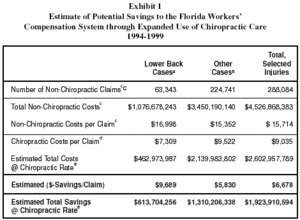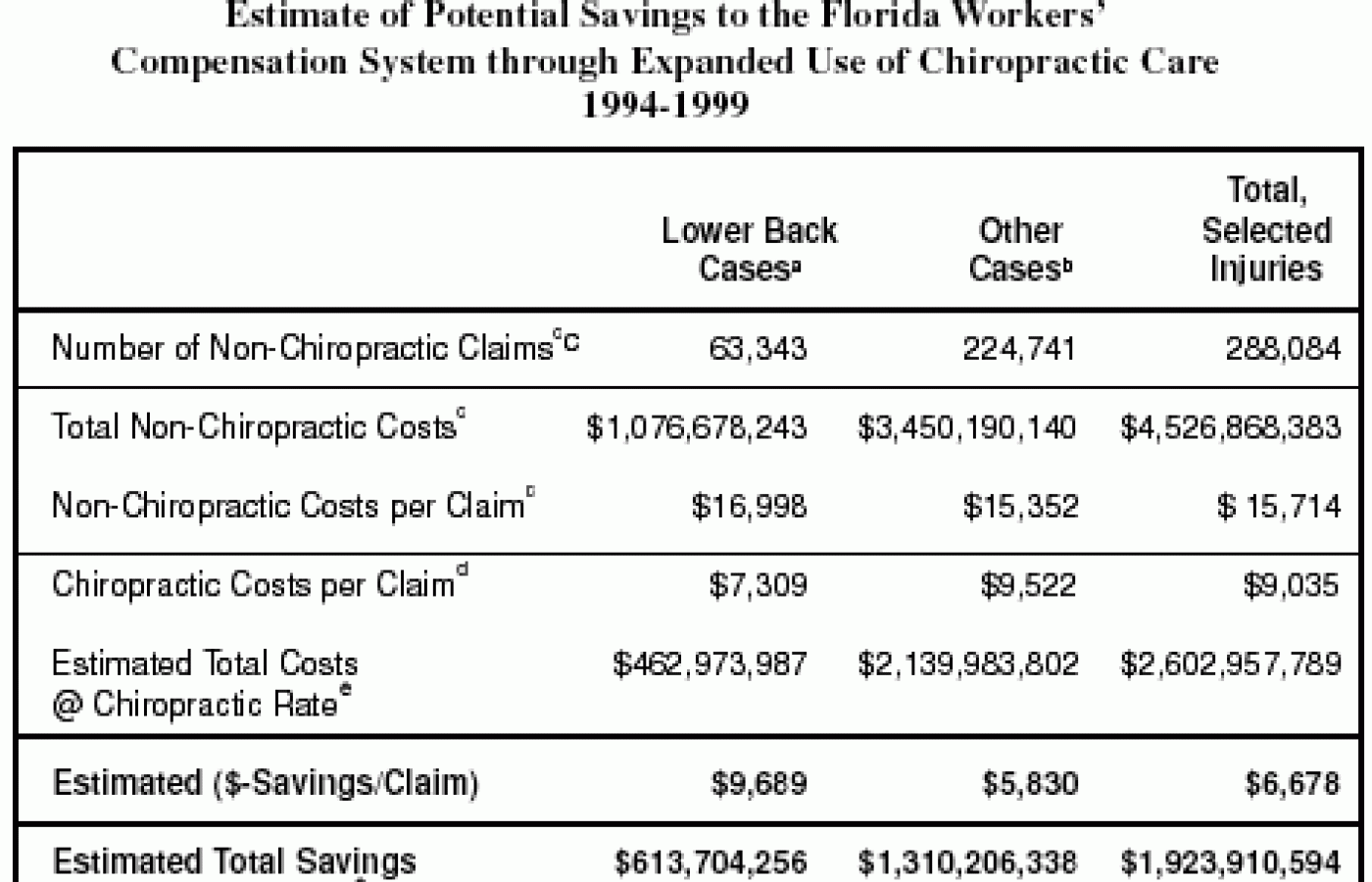It’s a new year and many chiropractors are evaluating what will enhance their respective practices, particularly as it relates to their bottom line. One of the most common questions I get is: “Do I need to be credentialed to bill insurance, and what are the best plans to join?” It’s a loaded question – but one every DC ponders. Whether you're already in-network or pondering whether to join, here's what you need to know.
Florida Paying Too Much for Medical Workers' Comp?
On January 1, 1997, a new Florida Workers' Compensation statute became effective. The statute mandated that "medically necessary remedial treatment, care, and attendance be rendered to claimants solely through managed care."1 Chiropractors in Florida became aware that the new policy was greatly restricting their access to workers' compensation claimants. It followed that there were fewer referrals for chiropractic, which led to the supposition that chiropractic's cost-saving impact on job-related musculoskeletal injuries had been greatly diminished.
To assess the full impact of the statute on chiropractic, the Florida Chiropractic Association (FCA) contracted with MGT of America, a national research firm, to:
- trace recent trends in the number of musculoskeletal workers' compensation claims treated by chiropractic before and after Jan. 1, 1997;
- assess costs of musculoskeletal claims treated by chiropractic physicians versus those treated by conventional medicine; and
- investigate improvements to health care delivery that have resulted form expanded access to chiropractic care in various health care settings.1
The MGT study reviewed the current scientific literature on the cost effectiveness of chiropractic care in workers' compensation, which revealed that substantial cost savings as high as 60 percent can be measured for health care and disability when chiropractic care is applied to low back and other musculoskeletal injuries; that chiropractic care has shown "results in reduced lost-work-time and fewer long-term disabilities."
Perhaps the most compelling part of the study was Exhibit 1:

SOURCE: Florida Department of Labor and Employment Security, Division of Workers' Compensation, Claims and Medical Billing Data.
a Includes contusions, sprains, strains, other specific injuries, other cumulative injuries, and multiple Injuries to the lower back.
b Includes contusions, fractures, lacerations, sprains, strains, and other specific injuries to single and multiple parts, excluding single body part injuries to the lower back.
c Total injury-specific claims and costs where less than 50% of professional fees were attributed to DCs.
d Average injury-specific cost per claim where 50% or more of professional fees were attributed to DCs.
e Total cost and savings that result when "non-chiropractic cost per claim" are adjusted to "chiropractic cost per claim."
Exhibit 1 demonstrates what the chiropractic profession has been trying to say for decades. Notice that the average cost for low-back cases treated medically is $16,998, while chiropractic care of the case is only $7,309. This places medical costs per claim more than 2.3 times that of chiropractic care for the same types of cases.
The study explains the huge differences:
"Chiropractic treatment typically involves approximately 80 percent of charges as professional fees, and approximately 20 percent as secondary health costs. This is reversed with conventional medical treatment, approximately 23 percent for physicians' fees, and the remaining 77 percent for the more expensive secondary costs (Chapman-Smith, 2000)."1
The study concluded: "Implications for the Florida workers' compensation system are obvious. Low back pain is responsible for half of workers' compensation costs (Mootz, Franklin, & Stoner 1999). Past research clearly demonstrates the success and cost-effectiveness (inclusive of all direct costs) of chiropractic care compared to other common medical treatments for low back pain. Similar effectiveness and cost savings appear to occur with chiropractic treatment of numerous other work-related musculoskeletal conditions as well. Therefore, the state of Florida should reconsider current policy restricting access of workers' compensation claimants to chiropractic care, and take full advantage of this promising cost containment opportunity."1
Sadly, this is probably the kind of study the chiropractic profession will be required to commission every time the value of chiropractic care is discussed and debated. It's commendable that the FCA spent the resources necessary to make its point in such a credible way. Now if only the Florida Workers Compensation commission will listen.
Reference
- Trends in chiropractic treatment of workers' compensation claimants in the state of Florida. Executive Summary, Feb. 8, 02. MGT of America (www.mgtofamerica.com).



